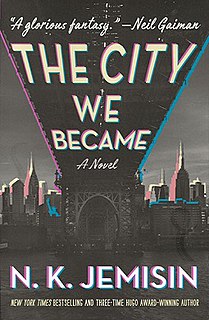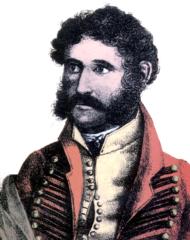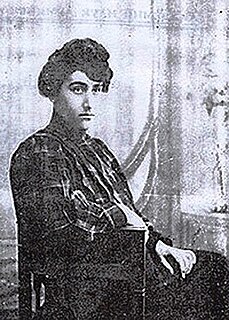 W
WProletarian poetry is a political poetry movement that developed in the United States during the 1920s and 1930s that expresses the class-conscious perspectives of the working-class. Such poems are either explicitly Marxist or at least socialist, though they are often aesthetically disparate. As a literature that emphasized working-class voices, the poetic form of works range from those emulating African-American slave work songs to modernist poetry. Major poets of the movement include Langston Hughes, Kenneth Fearing, Edwin Rolfe, Horace Gregory, and Mike Gold.
 W
WAnimal Farm is a satirical allegorical novella by George Orwell, first published in England on 17 August 1945. The book tells the story of a group of farm animals who rebel against their human farmer, hoping to create a society where the animals can be equal, free, and happy. Ultimately, the rebellion is betrayed, and the farm ends up in a state as bad as it was before, under the dictatorship of a pig named Napoleon.
 W
WAnti-Machiavel is an 18th-century essay by Frederick the Great, King of Prussia and patron of Voltaire, consisting of a chapter-by-chapter rebuttal of The Prince, the 16th-century book by Niccolò Machiavelli. It was first published in September 1740, a few months after Frederick became king.
 W
WArena Publishing Company was an American book and magazine publishing firm of the late 19th century, founded by author and editor B. O. Flower.
 W
WAt the Hub is a lengthy 2007 Hebrew political poem written by Uri Zvi Greenberg and edited by Dan Miron and Greenberg's widow Aliza Greenberg–Tur-Malka. Its publishing was made possible with the help of the Menachem Begin Heritage Center, the Israeli Ministry of Education, the Israeli Ministry of Culture and Sport, the Yehoshua Rabinovich Foundation for the Arts, Tel Aviv, and, the Mifal HaPais Council for the Culture and Arts.
 W
WThe City We Became is a 2020 urban fantasy novel by N. K. Jemisin. It is the first in her Great Cities series. It was developed from her short story "The City Born Great". It is her first novel since her triple Hugo Award-winning Broken Earth series.
 W
WDays and Nights of Love and War is a 1978 book by Uruguayan writer Eduardo Galeano. It was published in English translation in 1982 by Monthly Review Press. Structured as a series of fragments, the book varies in tone from straight journalism to expressionism and poetic lyricism and in genre from short story to aphorism to biography. It established the formal and thematic qualities of Galeano's prose, and won the Casa de las Américas Prize in 1978.
 W
WA Dialogue of Comfort against Tribulation is a work that was written by St. Thomas More while imprisoned in the Tower of London in 1534.
 W
WThe dictator novel is a genre of Latin American literature that challenges the role of the dictator in Latin American society. The theme of caudillismo—the régime of a charismatic caudillo, a political strongman—is addressed by examining the relationships between power, dictatorship, and writing. Moreover, a dictator novel often is an allegory for the role of the writer in a Latin American society. Although mostly associated with the Latin American Boom of the 1960s and 1970s, the dictator-novel genre has its roots in the nineteenth-century non-fiction work Facundo (1845), by Domingo Faustino Sarmiento. As an indirect critique of Juan Manuel de Rosas's dictatorial régime in Argentina, Facundo is the forerunner of the dictator novel genre; all subsequent dictator novels hearken back to it. As established by Sarmiento, the goal of the genre is not to analyze the rule of particular dictators, or to focus on historical accuracy, but to examine the abstract nature of authority figures and of authority in general.
 W
WDoina, or Doină, is a political poem by the Romanian Mihai Eminescu. It was first published in 1883 and is therefore seen by some as Eminescu's final work in verse, although it may actually be an 1870s piece, inspired or enhanced by the perceived injustice of the Berlin Treaty. A variation of the doina, picked up from Romanian folklore, it is noticeably angry to the point of rhetorical violence, a radical expression of Romanian nationalism against invading "foreigners", noted for its hints of ecopoetry and "anti-technicist" discourse. Doina delineates the ideal geographical space of Greater Romania, at a time when Romanian-inhabited regions were divided between an independent kingdom and multinational empires. Its final lines call on Stephen the Great, depicted as a sleeping hero, to take up the cause of Romanians and chase foreigners out with the sound of his horn. The same basic themes appear in another poem by Eminescu, the anthem-like La arme, which is sometimes discussed as a variant of Doina.
 W
WA Drunk Man Looks at the Thistle is a long poem by Hugh MacDiarmid written in Scots and published in 1926. It is composed as a form of monologue with influences from stream of consciousness genres of writing. A poem of extremes, it ranges between comic and serious modes and examines a wide range of cultural, sexual, political, scientific, existential, metaphysical and cosmic themes, ultimately unified through one consistent central thread, the poet's affectively charged contemplation, looking askance at the condition of Scotland. It also includes extended and complex responses to figures from European and Russian literature, in particular Dostoevsky and Nietzsche, as well as referencing topical events and personalities of the mid-1920s such as Isadora Duncan or the UK General Strike of 1926. It is one of the major modernist literary works of the 20th century.
 W
W"Free Thought and Official Propaganda" is a speech delivered in 1922 by Bertrand Russell on the importance of unrestricted freedom of expression in society, and the problem of the state and political class interfering in this through control of education, fines, economic leverage, and distortion of evidence.
 W
WShushanik Kurghinian was an Armenian writer who became a catalyst in the development of socialist and feminist poetry. She is described as having "given a voice to the voiceless" and herself saw her role as a poet as "profoundly political".
 W
WMasha, or the Fourth Reich is a dystopian novel by Lithuanian/Ukrainian author Jaroslav Melnik. Published in 2013 in Lithuanian by the largest publishing house company group in the Baltic states Alma littera, it was shortlisted for the Book of the Year Awards. 18 reviews have been published about this novel. Critics call this thriller ‘a shocking book that can be a bestseller in Western countries’. ‘In this book the author fulfilled Hitler's dream’. In 2016 the novel was published in Ukraine and became a bestseller. In 2020, the novel was published in France by Actes Sud.
 W
WThe American poet Walt Whitman greatly admired Abraham Lincoln, the 16th president of the United States, and was deeply affected by his assassination, writing several poems as elegies and giving a series of lectures on Lincoln.